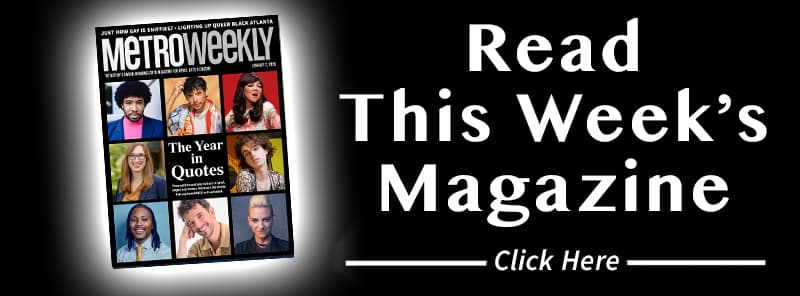
Meta, the parent company of Instagram, Facebook, and Threads, has been accused of restricting LGBTQ-specific content on its platforms.
According to journalist Taylor Lorenz, reporting on her User Mag Substack, Meta has been hiding content with LGBTQ-related hashtags for months, in the name of restricting “sexually suggestive content.”
As reported by Lorenz, posts employing the hashtags #lesbian, #bisexual, #gay, #trans, #queer, #nonbinary, #pansexial, #transwomen, #Tgirl, #Tboy, #Tgirlsarebeautiful, #bisexualpride, #lesbianpride, and other references to LGBTQ identity were censored or hidden from searches where Instagram’s “sensitive content” filter was turned on.
Because teenagers have the sensitive content filter turned on by default, when teenagers attempted to search for the hashtags in question, they were shown a blank page and a prompt from Meta to review the platform’s “sensitive content” restrictions, which explains why the app hides “sexually explicit” content.
In many cases, posts merely referencing LGBTQ identity or even containing benign images like rainbow Pride flags were blocked.
Meta subsequently reversed the restrictions on those terms after User Mag reached out for comment, saying that they had been “mistakenly restricted.”
“It’s important to us that all communities feel safe and welcome on Meta apps, and we do not consider LGBTQ+ terms to be sensitive under our policies,” a company spokesperson told Lorenz.
The restrictions were apparently adopted in response to demands from lawmakers and parents that social media platforms restrict the types of content accessible by minors, out of fear that they will be exposed to sexually explicit content.
Last year, Meta introduced a new set of “sensitive content” restrictions on Instagram, Facebook, and Threads, seeking to hide potentially objectionable or age-inappropriate content from teenage users.
In September, Meta forced all users under the age of 18 to use “Instagram Teen Accounts,” which allow parents to set time limits, and monitor and restrict the content that their children are accessing.
As a result of those changes, many posts using LGBTQ hashtags were blocked from the view of teenagers, while heterosexual content, “tradwife” content, and content featuring straight cisgender couples — even those engaged in romantic activities — were not.
Even LGBTQ content not marketed to teens has previously been shadow-banned or has been labeled “non-recommendable” in past years, reports Lorenz. In 2019, for example, a London-based dance club claimed that its engagement on Instagram declined due to shadow-banning, accusing Instagram of blocking access to non-explicit pictures or even scrubbing content depicting LGBTQ people or those who don’t conform to traditional expectations of gender or dress.
“Meta categorizing LGBTQ hashtags as ‘sensitive content’ is an alarming example of censorship that should concern everyone,” Leanna Garfield, the social media safety program manager for the LGBTQ media advocacy organization GLAAD, told User Mag.
Garfield noted that many LGBTQ youth use Instagram to connect with other LGBTQ youth and find supportive resources close to them. “By limiting access to LGBTQ content, Instagram may be inadvertently contributing to the isolation and marginalization of LGBTQ users,” she said.
A separate spokesperson for GLAAD told Lorenz that the censoring of LGBTQ hashtags underscores the importance of building an algorithm that will not categorically classify LGBTQ-related hashtags as “sensitive content.”
“Regardless of if this was an unintended error, Meta should…test significant product updates before launch,” the spokesperson said.
The accusations of censorship come as Meta CEO Mark Zuckerberg announced an overhaul of the company’s content moderation policies, including its restrictions on what the company terms “Hateful Conduct.”
As part of those restrictions, Meta has carved out exceptions that allow users to engage in and use anti-LGBTQ rhetoric, demand the exclusion of LGBTQ individuals from certain opportunities or spaces, or even refer to LGBTQ individuals as “mentally ill,” while at the same time prohibiting users from referring to non-LGBTQ people in a similar manner.
Don’t pay for your news. Click here to subscribe to Metro Weekly’s free magazine.


























You must be logged in to post a comment.